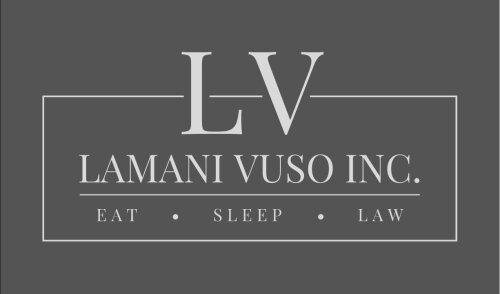Best Antitrust Lawyers in Cape Town
Share your needs with us, get contacted by law firms.
Free. Takes 2 min.
List of the best lawyers in Cape Town, South Africa
About Antitrust Law in Cape Town, South Africa:
Antitrust law in Cape Town, South Africa, also known as competition law, aims to promote and maintain fair competition in the market by regulating anti-competitive conduct. The main purpose is to prevent monopolies, protect consumers, and promote economic efficiency.
Why You May Need a Lawyer:
You may need a lawyer for Antitrust issues if you are facing allegations of anti-competitive behavior, are involved in a merger or acquisition that may raise competition concerns, or need guidance on complying with Antitrust laws.
Local Laws Overview:
In Cape Town, South Africa, the primary legislation governing Antitrust matters is the Competition Act, No. 89 of 1998. This law prohibits restrictive practices, abuses of dominance, and mergers that substantially prevent or lessen competition in the market. The Competition Commission and Competition Tribunal are responsible for enforcing these laws.
Frequently Asked Questions:
1. What is considered anti-competitive behavior?
Anti-competitive behavior includes actions such as price-fixing, market allocation, bid-rigging, and abusing a dominant market position.
2. What is the role of the Competition Commission?
The Competition Commission investigates anti-competitive behavior, reviews mergers, and enforces compliance with Antitrust laws.
3. What are the penalties for violating Antitrust laws?
Penalties for violating Antitrust laws in Cape Town can include fines, divestiture of assets, and injunctions against anti-competitive conduct.
4. What is the merger control regime in Cape Town?
Mergers that may substantially prevent or lessen competition in the market must be notified to the Competition Commission for approval.
5. How can I report anti-competitive behavior?
You can report anti-competitive behavior to the Competition Commission through their website or contact details provided on their official site.
6. Can individuals file Antitrust lawsuits in Cape Town?
No, only the Competition Commission can bring cases before the Competition Tribunal for Antitrust violations.
7. Are there any exemptions to Antitrust laws in Cape Town?
There are limited exemptions for certain agreements or practices that are deemed necessary for economic development or public interest.
8. How can I ensure compliance with Antitrust laws?
You can seek legal advice from Antitrust lawyers to ensure that your business practices comply with the Competition Act and regulations.
9. What is the process for Merger notification in Cape Town?
Mergers that meet the thresholds set out in the Competition Act must be notified to the Competition Commission, who will assess the potential impact on competition in the market.
10. Can Antitrust laws apply to foreign companies operating in Cape Town?
Yes, Antitrust laws apply to both local and foreign companies operating in Cape Town if their conduct has an effect on competition in the South African market.
Additional Resources:
For more information on Antitrust laws in Cape Town, you can visit the official website of the Competition Commission of South Africa or consult with local law firms specializing in Antitrust matters.
Next Steps:
If you require legal assistance with Antitrust issues in Cape Town, it is advisable to consult with an experienced Antitrust lawyer who can provide guidance on compliance, investigations, and legal representation before the Competition Tribunal.
Lawzana helps you find the best lawyers and law firms in Cape Town through a curated and pre-screened list of qualified legal professionals. Our platform offers rankings and detailed profiles of attorneys and law firms, allowing you to compare based on practice areas, including Antitrust, experience, and client feedback.
Each profile includes a description of the firm's areas of practice, client reviews, team members and partners, year of establishment, spoken languages, office locations, contact information, social media presence, and any published articles or resources. Most firms on our platform speak English and are experienced in both local and international legal matters.
Get a quote from top-rated law firms in Cape Town, South Africa — quickly, securely, and without unnecessary hassle.
Disclaimer:
The information provided on this page is for general informational purposes only and does not constitute legal advice. While we strive to ensure the accuracy and relevance of the content, legal information may change over time, and interpretations of the law can vary. You should always consult with a qualified legal professional for advice specific to your situation.
We disclaim all liability for actions taken or not taken based on the content of this page. If you believe any information is incorrect or outdated, please contact us, and we will review and update it where appropriate.
















